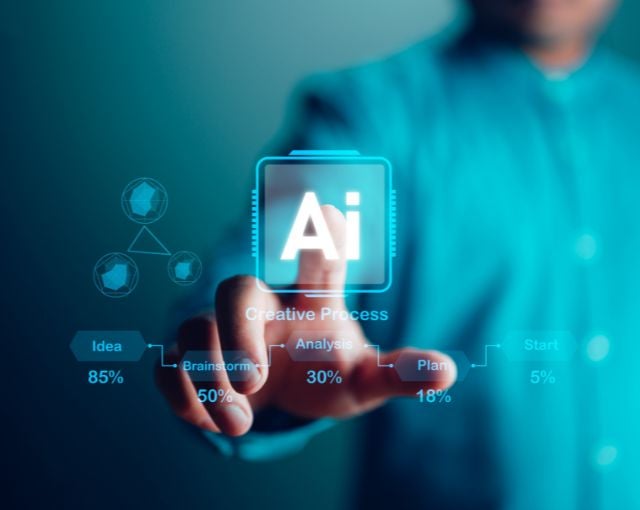
10/6/2023
A (too) Clever Friend
Abbreviated AI, this handy technology has been with us for over a century. Essentially, from the moment people began seriously to study human cognition and invent ways to substitute those functions with technology. That is the definition of AI – the ability of ma-chines to imitate human thinking, learn, plan, and solve problems.
Military Origin
The first development in the field of AI is attributed to Alan Turing. The British mathematician played an important role in the intelligence services during WWII when he cracked the Enigma encryption code. For most of the war, this gave the Allies access to valuable information about the enemy’s plans, and allowed them to devise efficient combat strategies. Alan Turing described the principles of the “universal computing machine” which should be able to solve any mathematical problem. That was where artificial intelligence began. He also devised the Turing Test which should determine whether one is communicating with a human or a computer.
Officially, the term artificial intelligence was first used in 1956 at a small summer mathematics workshop, which established AI as an independent field. That was when the economist Herbert Simon predicted that a computer would beat humans in chess within ten years. That proved too enthusiastic – the Deep Blue computer won over chess grandmaster Garry Kasparov in 1997.
📊 Ups And Downs
Since then, AI took several rises and several falls. The initial wave of optimism saw the creation of the ELIZA computer system at MIT. The artificial therapist used a set of rules saved to its memory and an algorithm which selected them and inserted them in a human-like conversation. The outcome took the authors by surprise. Most users believed that they communicated with a human. The year 1974 marked the so-called “First AI Winter”. The initial enthusiasm was gone when the speed of development failed to meet expectations. A drop in investments ensued. Artificial intelligence had to wait another 15 years to see its next great success. The first autonomous vehicle named Alvinn was constructed in 1989.
Pros and Cons
Artificial intelligence can substitute for a whole lot of jobs, but experts expect new positions to emerge. A survey by the European Commission indicates that about 60 million new jobs related to AI could develop globally by 2025.
Routine Assistance
Today, we use artificial intelligence every day, quite unaware. It collects information about our activities, hobbies, or preferences, and then processes the data to give us just what we desire. That is how you get customized advertising online. But AI also includes our daily household aids – a robot vacuum cleaner will sweep your floors at any desired and adjusted time, an autonomous mower will trim your lawn, and an automatic petfood dispenser will feed your cat.
Text: Lucie Bezoušková
Photo: Shutterstock.com
The whole artcile is to be found in magazine of Leo Express
Share article
0 x
Copy URL
Log into the loyalty program Smile Club
Don't have an account yet?
By logging in I agree with conditions of the loyalty program, processing of personal data and declare that I have reached the age of 16. Cancellation of tickets is only possible to leo credits.


